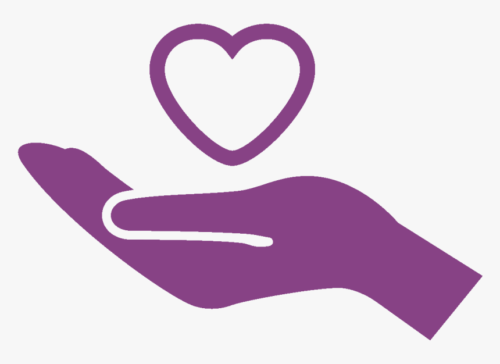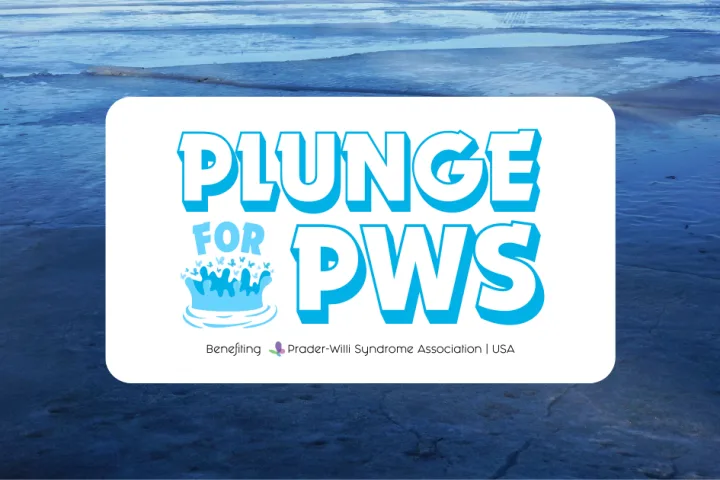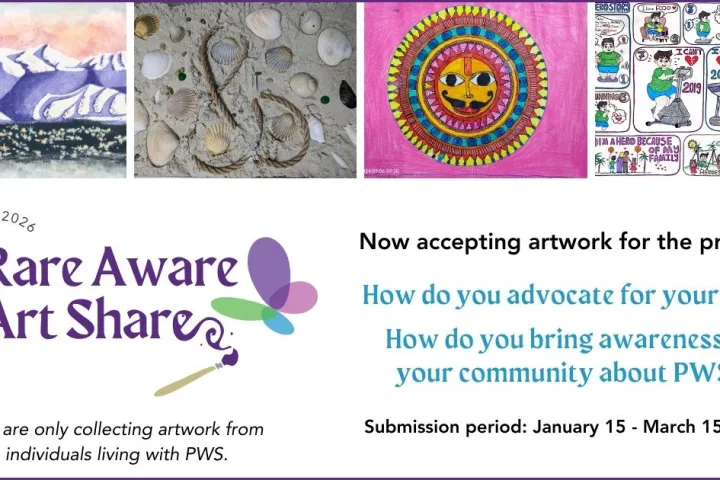Finding a mental health professional who has experience working with individuals with Prader-Willi syndrome can be challenging. The following are some suggestions to help you with your search:
- Talk to your primary care provider. She or he might be able to recommend one or more clinicians who are familiar with PWS.
- Call your state or local PWSA chapter if you have one. They might maintain their own list of mental health professionals in your area, or they can connect you with other members in your area who can provide some names.
- Contact PWSA | USA to see if they have names of any mental health professionals in your area in their database. You can also search for a provider on the website https://www.pwsausa.org/providers-healthcare/
- You might be able to find someone outside of your community who is willing and able to treat your child virtually. Keep in mind you might have to travel for the initial in-person visit if required.
- Talk to other parents whose children have PWS or other developmental challenges as they might be able to provide you with recommendations.
- If a child or teen with PWS is in need of a referral, check with the school psychologist who may be able to provide you with some possibilities.
Unfortunately, you might not find a mental health professional who has experience with PWS. In this situation, you can share PWS educational materials with the clinician you choose to work with your child. Some helpful resources can be found on PWSA | USA’s website:
- Mental Health and Behavior Changes: When should parents seek help? By Dr. Janice Forster, MD and Linda Gourash, MD (The Pittsburgh Partnership) and Kathy Clark, R.N., M.S.N
- The Mental Health of People with Prader-Willi Syndrome with Specific Focus on Mood Disorders and Psychotic Illness, by Tony Holland B.SC, M.B.B.S., M.R.C.P , M. Phil., F.R.C. Psych, University of Cambridge
- Psychotic Medication Tip Sheet for Patients with Prader-Willi Syndrome for Health Care Providers, by Elizabeth M. Dykens, Ph.D, and Elizabeth Roof, M.A., L.P.E., Vanderbilt University, Nashville, TN
PWSA | USA can help set up a peer-to-peer consultation during which a clinician is connected to a psychiatrist or other mental health professional who has experience working with individuals who have PWS. Contact PWSA | USA’s Family Support team at (800) 926-4797 to make arrangements.
It can be very challenging and frustrating finding a mental health professional who has experience in working with children and adults with PWS who are facing a mental health challenge. Stay encouraged and know help is never more than a phone call away.





 Perry A. Zirkel has written more than 1,500 publications on various aspects of school law, with an emphasis on legal issues in special education. He writes a regular column for NAESP’s Principal magazine and NASP’s Communiqué newsletter, and he did so previously for Phi Delta Kappan and Teaching Exceptional Children.
Perry A. Zirkel has written more than 1,500 publications on various aspects of school law, with an emphasis on legal issues in special education. He writes a regular column for NAESP’s Principal magazine and NASP’s Communiqué newsletter, and he did so previously for Phi Delta Kappan and Teaching Exceptional Children. Jennifer Bolander has been serving as a Special Education Specialist for PWSA (USA) since October of 2015. She is a graduate of John Carroll University and lives in Ohio with her husband Brad and daughters Kate (17), and Sophia (13) who was born with PWS.
Jennifer Bolander has been serving as a Special Education Specialist for PWSA (USA) since October of 2015. She is a graduate of John Carroll University and lives in Ohio with her husband Brad and daughters Kate (17), and Sophia (13) who was born with PWS. Dr. Amy McTighe is the PWS Program Manager and Inpatient Teacher at the Center for Prader-Willi Syndrome at the Children’s Institute of Pittsburgh. She graduated from Duquesne University receiving her Bachelor’s and Master’s degree in Education with a focus on elementary education, special education, and language arts.
Dr. Amy McTighe is the PWS Program Manager and Inpatient Teacher at the Center for Prader-Willi Syndrome at the Children’s Institute of Pittsburgh. She graduated from Duquesne University receiving her Bachelor’s and Master’s degree in Education with a focus on elementary education, special education, and language arts. Evan has worked with the Prader-Willi Syndrome Association (USA) since 2007 primarily as a Crisis Intervention and Family Support Counselor. Evans works with parents and schools to foster strong collaborative relationships and appropriate educational environments for students with PWS.
Evan has worked with the Prader-Willi Syndrome Association (USA) since 2007 primarily as a Crisis Intervention and Family Support Counselor. Evans works with parents and schools to foster strong collaborative relationships and appropriate educational environments for students with PWS. Staci Zimmerman works for Prader-Willi Syndrome Association of Colorado as an Individualized Education Program (IEP) consultant. Staci collaborates with the PWS multi-disciplinary clinic at the Children’s Hospital in Denver supporting families and school districts around the United States with their child’s Individual Educational Plan.
Staci Zimmerman works for Prader-Willi Syndrome Association of Colorado as an Individualized Education Program (IEP) consultant. Staci collaborates with the PWS multi-disciplinary clinic at the Children’s Hospital in Denver supporting families and school districts around the United States with their child’s Individual Educational Plan. Founded in 2001, SDLC is a non-profit legal services organization dedicated to protecting and advancing the legal rights of people with disabilities throughout the South. It partners with the Southern Poverty Law Center, Protection and Advocacy (P&A) programs, Legal Services Corporations (LSC) and disability organizations on major, systemic disability rights issues involving the Individuals with Disabilities Education Act (IDEA), Americans with Disabilities Act (ADA), and the federal Medicaid Act. Recently in November 2014, Jim retired.
Founded in 2001, SDLC is a non-profit legal services organization dedicated to protecting and advancing the legal rights of people with disabilities throughout the South. It partners with the Southern Poverty Law Center, Protection and Advocacy (P&A) programs, Legal Services Corporations (LSC) and disability organizations on major, systemic disability rights issues involving the Individuals with Disabilities Education Act (IDEA), Americans with Disabilities Act (ADA), and the federal Medicaid Act. Recently in November 2014, Jim retired.